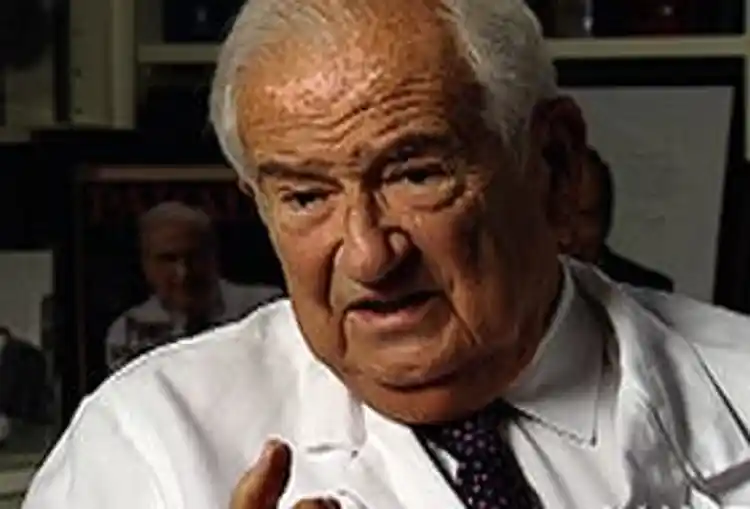Today's Doctor-Patient Relationship

Hide Video Transcript
Video Transcript
Narrator
How is the doctor-patient relationship changing? Isadore Rosenfeld, MD
Now I don't know how doctors feel about their patients or how patients feel about their doctors, but the real, real interaction whether that interaction is meaningful, you can have, a doctor can have the best of intentions towards a patient but if he doesn't give him or her the time to listen to the complaint or to explain what he or she is doing for them, the feeling doesn't mean anything. And, unfortunately, I think the health care system in this country is broken. That's the reason why WebMD is so important. I mean WebMD is now replacing what patients should be asking doctors or doctors should be telling patients. And the reason for that is not because doctors' motivation has changed. I still think that young men and women go into medicine to be healers. But then they enter the real world, where they have to pay the rent and pay the staff, and pay for the equipment and pay their malpractice insurance, on the one hand, and on the other, have negligible reimbursement, whether it's by the government, or by insurance companies and the truth is that most doctors cannot exist any more in private practice, except if they are a neurosurgeon or a busy specialist surgeon, but I'm talking about the doctor who delivers everyday care and that's the most important kind of doctor there is. They cannot do it financially. And so, instead of allotting 30 to 45 minutes for a patient or an hour for a new patient, they have to see more patients. They need volume. And they have tell your problems to the nurse outside, or you fill in a questionnaire, and that questionnaire has no relationship to you, and I think you've hit on the single most important problem in American medicine today. We have all the technology, we can do, we can cure leukemia, we can cure cancer, we can do bypasses, we can do stents and angioplasties, but the most effective thing between a doctor and a patient is communication where a patient learns how to prevent these things, knows about lifestyle, knows to report suspicious symptoms. Today, patients don't have access to doctors even if doctors have the time, and so they've got to an emergency room with something that the doctor should be seeing in the office and they sit for 8 and 10 hours in the emergency room, and the next time, they develop a symptom, they say, I'm not going to go, I don't have the time or the patience, I can't do it. And that is where our medical system is broken down. 
